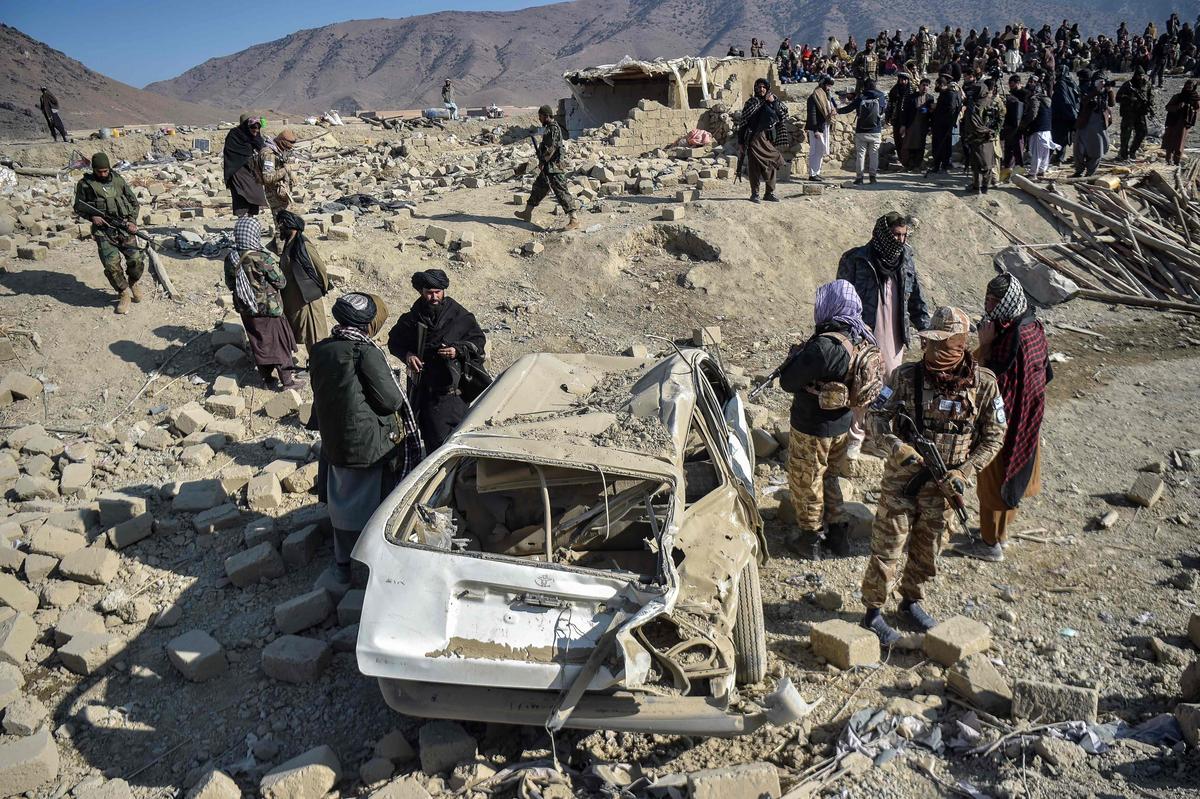The terrible and ironic Pakistani bombing on Afghan territory

India’s sharp condemnation of Pakistan’s recent airstrike on civilian areas in Afghanistan underscores a broader regional concern that has plagued South Asia for decades: Pakistan’s unchecked military actions and the tragic toll they take on innocent lives. But beyond that, there is also an unspoken sense within India’s strategic planning circles that the boot is finally on the other foot.
Pakistan, which nurtured and fed the Taliban for decades and was its principal support system, is finally feeling the heat of terrorism.
India’s Ministry of External Affairs (MEA) expressed unequivocal disapproval of the December 26 airstrikes, which claimed the lives of at least 46 civilians, including women and children. The civilian carnage in Afghanistan’s eastern Paktika province has drawn widespread condemnation, with India’s spokesperson, Randhir Jaiswal, remarking that “it is an old practice of Pakistan to blame its neighbours for its own internal failures.”
However, that does not mean that Pakistan’s military, which often justifies its cross-border military actions as counter-terrorism operations, has toned down the rhetoric. This time, they framed the attacks as part of their struggle against the Tehreek-e-Taliban Pakistan (TTP), a militant group based in Afghanistan.
Yet, for Kabul, the narrative is painfully different. Afghan officials are categorically rejecting Pakistan’s version, arguing that these attacks primarily targeted refugees, not insurgents, and violated international norms of conduct. The Afghan Ministry of Defence’s swift activation of its new missile systems and strong condemnation show that the government is prepared to take this challenge head-on.
Afghan officials, particularly from the Taliban-run government in Kabul, have denounced the strikes as a violation of Afghan sovereignty and a “blatant act of aggression”. Enayatullah Khwarazmi, a spokesperson for Afghanistan’s Ministry of National Defence, has made it clear that the Afghan government would respond to this “cowardly act,” and the foreign ministry has lodged a formal protest, warning that such incursions cannot go unanswered.
Afghanistan’s response to the attack—a formal protest and the summoning of Pakistan’s ambassador—reflects a growing impatience with Pakistan’s military tactics. Afghanistan’s growing military capabilities, including the activation of the Milan Konkursi missile system, signal a readiness to confront such challenges head-on. These developments suggest that Kabul is prepared to meet military incursions with force, should the need arise. As tensions between the two countries escalate, the broader implications for regional security and bilateral relations are significant. Both Afghanistan and Pakistan have long accused each other of harbouring militants, with Pakistan claiming that Afghanistan does little to curb the TTP’s activities and Afghanistan accusing Pakistan of violating its territorial integrity.
The civilian toll—predominantly women and children, many of whom had fled previous military operations in Pakistan’s northwest—speaks volumes about the indifference toward human life in these regions. As tragic as it is, the situation was almost inevitable given the long-standing accusations against Pakistan of fomenting trouble on Afghan soil and its recurring military actions against what it claims are militant groups. However, when the line between counterterrorism operations and acts of aggression blurs, the distinction between combatants and non-combatants becomes dangerously irrelevant.
Pakistan’s claim to be combating terrorism on Afghan soil, however, rings hollow when the victims are civilians caught in the crossfire of geopolitical manoeuvring. As India rightly points out, this is not the first time Pakistan has engaged in such actions under the guise of counter-terrorism.
The consistent pattern of shifting the blame to its neighbours while disregarding international law and the sanctity of human life cannot go unnoticed.
India’s reaction is a reminder of the precarious regional stability and the dangers of unchecked military aggression.
The attacks in Paktika show that violence, especially in conflict zones, must never be justified by the ends. Innocent lives, including women and children, are always the ultimate cost of such policies. India’s diplomatic position on the matter is a reinforcement of its longstanding concern about Pakistan’s destabilizing activities across the region, making it clear that the time for complacency is over.
As the situation unfolds, it is clear that the stakes in this volatile region continue to rise. The consequences of these military strikes—both in terms of human lives lost and the diplomatic fallout—will likely shape the trajectory of relations between India, Pakistan, Afghanistan, and other neighbouring countries. The lesson is clear: violence cannot be justified by its supposed objectives, and the price of these policies will always be measured in the lives of innocent civilians. As India’s response demonstrates, there is no room for tolerance of such actions in a peaceful, civilised world.






